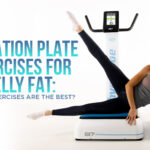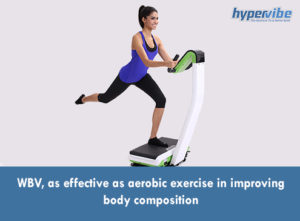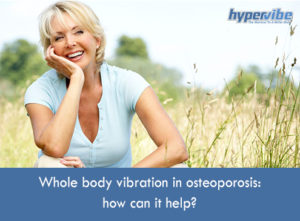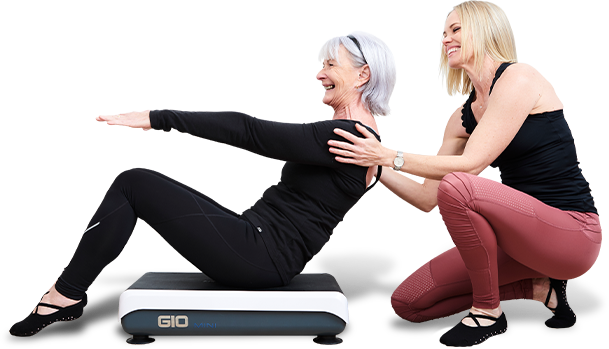How Can You Deal With Permanent Body Changes After Pregnancy?
Being pregnant and having a child is an amazing, special and exciting time in a woman’s life. But post-partum, women can expect to see some temporary as well as permanent changes in their bodies. From your feet to your belly, your face and your hair, some changes will fade with time, while others will remain with you for life. One of the major changes that a woman may go through is a sped-up ageing process.
In fact, researchers at Northwestern University have found that every pregnancy can age a mother’s cells by two years. Meanwhile, childbirth can age a woman by as many as 11 years. While this may be a cause for concern, there is an upside to all this. There are ways to get your body back and there are some things you can do to manage permanent body changes after pregnancy. Let’s explore this topic in more detail below.
What are the permanent effects of pregnancy?
There are both temporary and permanent body changes after pregnancy that many women go through. These will depend on the weight and size of the baby, genetic factors and family history as well as more general pregnancy-related after-effects.
For example, some of the temporary changes a woman might experience after pregnancy may include the following:
- Vaginal bleeding and discomfort: vaginal bleeding ranging from heavy to moderate levels is normal and temporary after having a baby. It’s highly recommended that you use pads instead of tampons when dealing with excess discharge.
- Varicose veins and haemorrhoids: these are swollen, sore and blue veins that may appear on a woman’s legs, vulva, vagina and rectum.
- Uterine cramps: these are generally called “after birth” pains and are caused when oxytocin is released. It may be more noticeable during breastfeeding.
- Back aches: your posture could be affected due to having to support a heavy uterus during your pregnancy.
- Breast discomfort: nipple tenderness is also quite commonly encountered, particularly during the first six weeks. Some women experience cracked nipples or bleeding ones as well as breasts that leak.
- Body temperature variations: it’s common that your body temperature will fluctuate after pregnancy. However, having a high temperature or experiencing shivering should be things that are addressed by your medical practitioner.
- Rectocele: this refers to the tearing of the rectovaginal septum that separates the rectum and vagina. As such, rectal tissue can “bulge” through the opening and this is similar to a hernia.
- Prolapse: this usually occurs in women who have given a vaginal birth and it occurs when the walls of the vagina have been stretched to such an extent that one or more of the pelvic organs (bladder, uterus or rectum) bulge down in the vaginal area.
- Hair loss and regrowth: it’s natural for hair loss to occur post-partum as hormone levels change. However, this is a temporary feature and your hair will get back to normal after some time.
- Weight loss and gain: another normal consequence post-partum, it may take time for your body to shed its baby weight. However, weight loss should not be rushed.
Meanwhile, more permanent body changes after pregnancy can expect include:
- Abdominal separation: the medical term for this is diastasis recti abdominis and it means that your abdominal muscles start spreading apart. This can be a painful process and for most women, this is a permanent change.
- Body widening: this refers to the bone – particularly ribs and hips – an expansion that occurs when the body makes way for the baby to exit the birth canal.
- Dental problems: usually caused by acid from morning sickness, hormonal changes and increased blood flow, your teeth can and will be affected with possible tooth decay.
- Skin changes: these are usually caused by an increase in estrogen and can result in your face, areolas, stomach and moles darkening. Stretch marks and scars can also become permanent features, although they can fade with time.
- Breast size changes: you are also highly likely to see smaller breasts that can also be saggier owing to fat accumulation in the tissue. It is suggested that breastfeeding does not affect breast changes.
- Feet size increase: apart from swollen ankles, your feet’s arches may also flatten out and your shoe size may become permanently bigger because of the extra weight that puts your feet under pressure.
- Brain changes: studies have shown that a woman’s brain shrinks during pregnancy and for some, this may be a temporary occurrence while for others it will be permanent. It is usually characterised by emotional changes that may result in postpartum depression or anxiety.
Does pregnancy permanently change your face?
Among some of the permanent body changes after pregnancy women may experience in the face include hyper-pigmented or darkened skin on the face. This is often called the “mask of pregnancy” (or chloasma/melasma) and it creates blotchy, irregularly shaped patches on the face. Birthmarks, moles and freckles may also darken. This is often caused by higher levels of oestrogen and progesterone. If untreated, these spots may remain on your face for life.
Many women also frequently ask about changes in their nasal shape after pregnancy. These are usually considered temporary and are a result of swelling in the body. It is highly likely that your nose will return to its normal shape as the swelling subsides.
Does your waist go back to normal after pregnancy?
Having a post-partum belly does not have to be a permanent body change after pregnancy. Firstly, we’ll talk about the fluids. There are several fluids that build up in your body during pregnancy but afterwards, they tend to be excreted through urine, vaginal secretions and sweat.
Also, the uterus size will decrease and start normalising within about six to eight weeks after birth. For other moms though, this may require additional exercise and dietary changes to get your waist and tummy back in shape. Although it is strongly recommended that you do light exercises for these changes to occur and to have an effect without causing you more harm or placing excess strain on you.
Can you get your old body back after pregnancy?
In short, although there are some permanent body changes after pregnancy, weight gain and retention don’t have to be one of them. You will naturally lose some weight within six to eight weeks after birth. And following this period, you’re likely to have around 10 to 15 pounds left to lose in the coming months. However, there are ways to help you with this process. Take a look below.
How to restore your body after pregnancy
Although a woman’s body goes through tremendous changes during pregnancy and the outcomes after pregnancy may feel permanent, things like body weight and fat accumulation shouldn’t be a concern because there are steps you can take to address these issues.
For example, the benefits of breastfeeding for weight loss are shown to produce positive results. Eating a healthy diet and managing your physical activity are two other very important factors to consider. Vitamin intake (vitamin C and iron) should be a continued priority as is getting enough sleep.
With regard to exercise, it’s highly recommended that you start off gently so that you do not harm yourself or cause excess stress for your body. Moderate, low-impact cardio and core strengthening exercises are excellent ways to ease into an exercise regimen. One of the best ways to do this is to use vibration plate machines that are combined with the right exercises and diet. These gentle whole-body stimulations are a good way of helping you get back in shape.
In conclusion
Even though there are some permanent body changes after pregnancy, women can still get back in shape with a vibration plate machine in the comfort of their own homes. These gentle vibrations, when combined with a healthy diet and supplemented by the right exercises, can help strengthen your core and help you reduce stubborn belly fat that just doesn’t seem to want to go away.
Resources:
https://www.hopkinsmedicine.org/health/wellness-and-prevention/what-really-helps-you-bounce-back-after-pregnancy
https://www.webmd.com/parenting/baby/features/post-pregnancy-body-changes#:~:text=Belly%20Bulge,back%20to%20its%20prepregnancy%20size.%E2%80%9D
https://mihp.utah.gov/after-pregnancy/how-can-i-get-back-to-my-pre-pregnancy-weight#:~:text=Be%20Patient!,return%20to%20their%20normal%20weight.
https://www.health.qld.gov.au/news-events/news/6-ways-your-body-can-change-after-pregnancy-childbirth-postpartum#:~:text=Your%20body%20may%20have%20become,and%20hips%20will%20be%20permanent.












